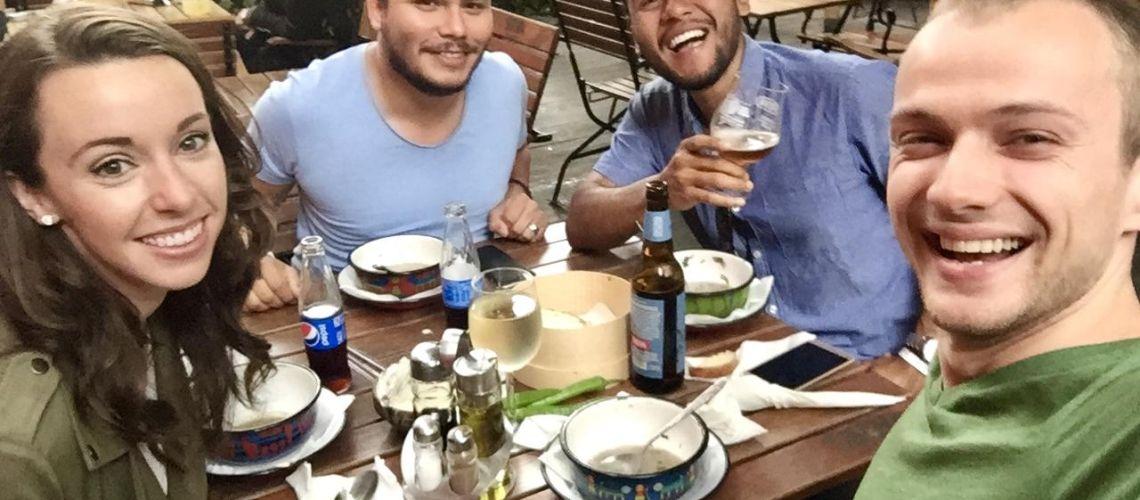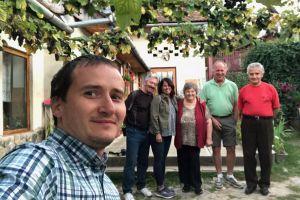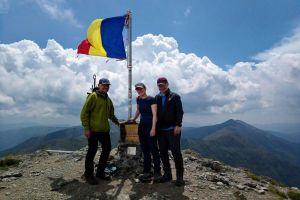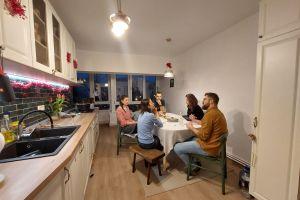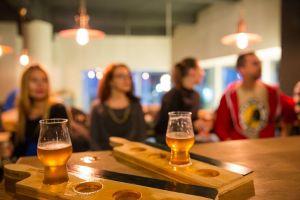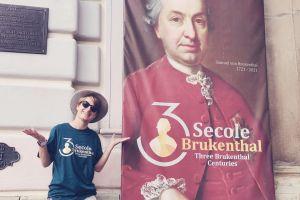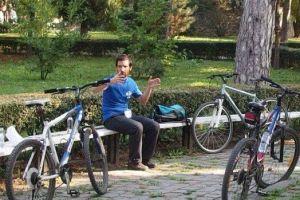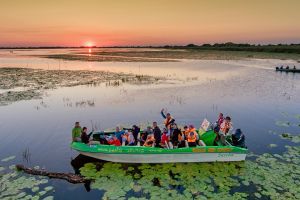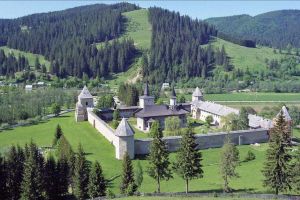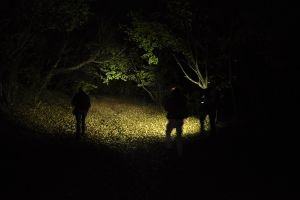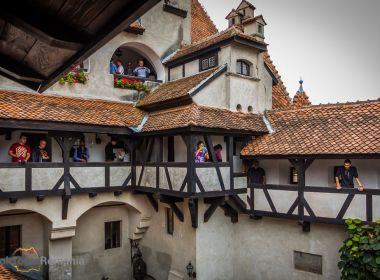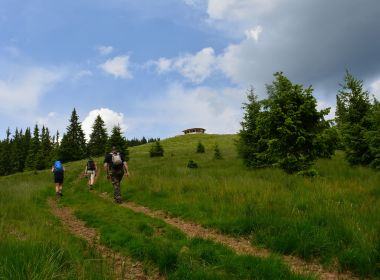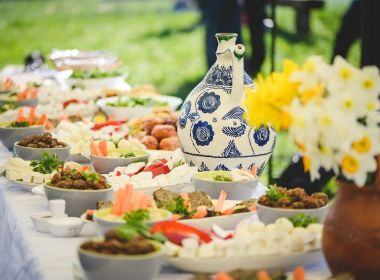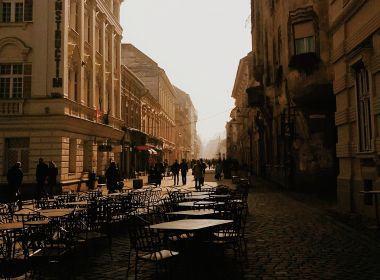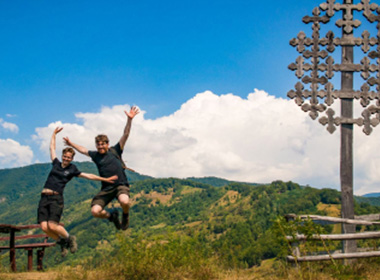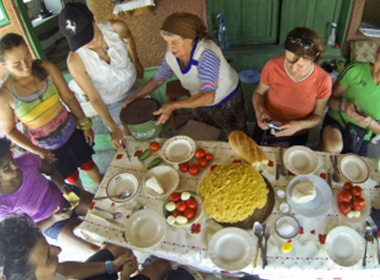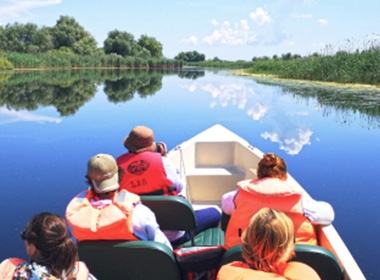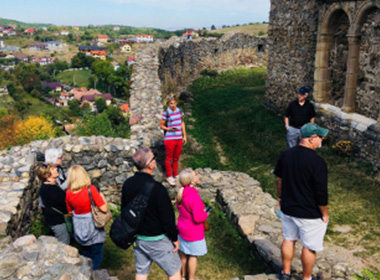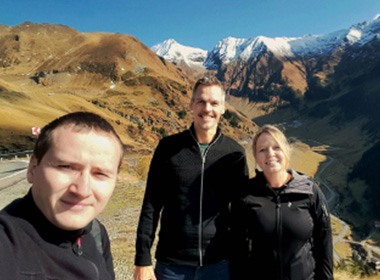If you want to know some basic Romanian words or useful phrases for tourists such as Where is the bathroom? or How do I get to the train station? or even Help! this article is for you. Knowing some basic Romanian may be your lifeline in unexpected situations.
And I’m a big fan of saying Hello or Thank you in different languages - even if it’s hard to pronounce! sawadi ka :)
I think it’s a sign of respect towards locals, but also a way to connect deeper with them beyond the typical politeness expected in tourism.
I know not everyone is able (or willing on their holiday!) to remember basic phrases, especially considering all the different languages and pronunciations around the world.
But whether you’re on a weekend trip or doing multi-day itineraries, knowing some basic Romanian phrases will help you:
- stay safe (our Romania safety guide will also be helpful)
- have some peace of mind while visiting remote areas
- show respect to the locals and have more fun, meaningful interactions with them
So in this article I want to equip you with some Romanian words that will make your holiday in our country safer, more enjoyable and fun.
Table of contents
- 1. Basics facts about Romanian language
- 2. Greetings and politeness phrases
- Greeting words
- Basic Romanian phrases
- 2. Basic phrases for socializing in Romanian
- 3. Asking for and understanding directions in Romanian
- Asking for directions
- Orientation vocabulary
- Most common destinations and points of interest
- 4. Common phrases for transportation
- 5. Common phrases at the accommodation
- 6. Ordering food and drinks
- 7. Useful phrases for shopping
- 8. Celebrations and special occasions
- 9. In case of emergency
- 10. Feelings and compliments
- 11. Other helpful everyday words and phrases
- 12. Colloquial Romanian expressions
- Conclusion
P.S. Check out section 12 in this article, it's my favorite one :)
1. Basics facts about Romanian language
Despite being in Eastern Europe, many tourists are surprised to learn that the Romanian language is a Romance language. So, you’ll find many basic words and phrases similar to those in Italian (closest relative), French, and Spanish.
Romanian vocabulary predominantly stems from Latin and is the closest to it in its family. However, as a non-Romance language spoken in the region influenced its development, Romanian also borrowed many words from Hungarian, Slavic, and Turkish over the centuries. In recent years, English has contributed numerous new terms, particularly in business and IT.
Furthermore, the phonetic nature of Romanian pronunciation ensures that most words are pronounced as they are written, making it easier for those with ambitious plans to learn the Romanian language.
And, finally, the Romanian language uses a simple, straightforward version of the Latin alphabet with few variations. Unlike our Bulgarian, Serbian and Ukrainian neighbours who use the Cyrillic alphabet or the Hungarian or Poles who use something more complicated than the basic Latin one.
So, if you’re planning to visit Romania, using English in combination with some charades or obvious signs will be enough to navigate many situations. This is true if you're starting conversations with young people in major Romanian cities. Check our Romania travel guide for first time visitors to find out more.
However, things are different if you want to have an authentic culture trip and visit traditional regions or go hiking in remote areas in the Romanian Carpathian mountains. Most Romanians you’ll meet there will not speak English and may not be used to foreign tourists.
The reason for this is simple: our country is an underrated and under-promoted tourism destination with few international visitors. So if you don’t have a local guide with you, asking for directions or getting help from a native speaker may be very difficult…
Despite being very open and eager to help no matter what, Romanians will appreciate it if you try to say some common phrases in their language. Making the slightest effort to remember a few key Romanian words will go a long way with locals, and they will even try to teach you new ones.
Local insight:Romanians have a good, some would say dirty, sense of humor :) they're usually on a simple yet passionate mission to teach foreigners curse words and phrases, or how to talk to Romanian women, known for their beauty.
Related: 30 Things Romania is Most Famous For.
**
So now let’s get started and teach you some basic Romanian phrases. Ready?
2. Greetings and politeness phrases
Before making small talk in Romanian, you should be able to greet and politely address locals. Here are the basic Romanian words to establish real-life connections:
Greeting words
| English | Romanian | Phonetic transcription |
|---|---|---|
| Hello/Hi | Salut | /sa'lut/ |
| Bună | /bu'nə/ | |
| Good day (formal) | Bună ziua | /bu'nə 'ziwa/ |
| Good morning | Bună dimineața | /bu'nə di.mi'ne̯at͡sə/ |
| Good afternoon | Bună ziua (before 4 pm) | /'bu.nə 'zi.wa/ |
| Good evening | Bună seara (after 4 pm) | /'bu.nə 'se̯a.ra/ |
| Good night | Noapte bună | /no'ap.te 'bu.nə/ |
| Goodbye | La revedere | /la re.ve'de.re/ |
Basic Romanian phrases
| Thank you (formal) | Mulțumesc | /mul.t͡suˈmesk/ |
| Thank you very much | Mulțumesc mult | /mul.t͡suˈmesk mult/ |
| Thanks (informal) | Mersi | /ˈmersi/ |
| Welcome | Cu plăcere | /k(u) 'plə.t͡ʃe.re/ |
| How are you? | Ce faci? | /t͡ʃe ˈfat͡ʃʲ/ |
| Ce mai faci? | /se mɑj 'fat͡ʃʲ/ | |
| Please (formal) | Vă rog | /və roɡ/ |
| Please (informal) | Te rog | /te roɡ/ |
| You’re welcome | Cu plăcere | /ku ˈplə.t͡ʃe.re/ |
| Excuse me | Mă scuzați | /mə skuˈzaʦʲ/ |
| I’m sorry (formal) | Îmi pare rău | /ˈɨmʲ pa.re rəw/ |
| Sorry (informal) | Scuze | /ˈsku.ze/ |
The best ways to practice these phrases are in crowded places with Romanian speakers where lots of informal exchanges happen such as… a farmers’ market! As you walk through stalls looking for fresh produce and local delicacies, you’ll be greeted by sellers and have lots of opportunities to interact at a simple level of language with them:
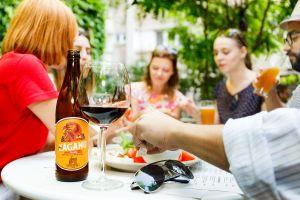
Bucharest Street Food Tour: Farmers' Markets & Hidden Streets
Start from: University Square

Cluj-Napoca Food Tour: Food Markets, Regional Dishes and Coffee Culture
Start from: Cluj-Napoca
2. Basic phrases for socializing in Romanian
Once you’ve mastered the greetings of the Romanian language, you can go to level 2 and start making friends with Romanian speakers :)
You will need to know how to introduce yourself, say a few basic words about where you come from, and ask a few basic things about the person you are talking to.
| English | Romanian | Phonetic transcription |
|---|---|---|
| What’s your name? | Cum te numești? | /kum te nuˈmeʃtisʲ/ |
| Nice to meet you | Mă bucur să te cunosc | /mə buˈkur sə te kuˈnosk/ |
| My name is… | Eu mă numesc | /jeu mə nuˈmesk/ |
| Where are you from? | De unde ești? | /de un.de ˈeʃtisʲ/ |
| I am from… | Eu sunt din… | /jeu sunt din/ |
| I live in… | Eu locuiesc în… | /jeu lo.kwiˈesk ɨn/ |
| I am…years old | Eu am … ani | /jeu am … ani/ |
As you’ll see, Romanians are very friendly and hospitable. So you’ll have lots of opportunities to practise these phrases when meeting them.
3. Asking for and understanding directions in Romanian
Whether you're exploring Romania in small-group trips or braving the journey alone, mastering basic phrases for asking and understanding directions is not just a good idea — it's essential for curious travelers eager to have authentic experiences as tourists.
Don't worry; the most common words for direction and orientation are very simple, as you can see below:
Asking for directions
| English | Romanian | Phonetic transcription |
|---|---|---|
| Where is…? | Unde este? | /ˈunde ˈeste/ |
| How do I get to? | Cum ajung la…? | /kum aˈʒuŋɡ la/ |
| Where can I find…? | Unde găsesc…? | /ˈunde ɡəˈsesk/ |
Orientation vocabulary
| English | Romanian | Phonetic transcription |
|---|---|---|
| Left | Stânga | /stɨŋ.ga/ |
| Right | Dreapta | /dre̯ap.ta/ |
| straight ahead | Drept în față | /drept ɨn ˈfa.tsə/ |
| across the street from… | Peste drum de… | /ˈpes.te drom de/ |
| Vis-à-vis de… | /vis.a.vis de/ | |
| first right | Prima la dreapta | /ˈpri.ma la dre̯ap.ta/ |
| first left | Prima la stânga | /ˈpri.ma la stɨŋ.ga/ |
| turn back | Întoarce-te înapoi | /ɨnˈto̯ar.t͡ʃe.te ɨ.naˈpoj/ |
| behind | În spatele | /ɨn spaˈte.le/ |
| next to | Lângă | /ˈlɨn.ɡə/ |
| in front of | În fața | /ɨn ˈfa.tsə/ |
| on the corner of | la colț cu | /la kolt͡ʃ ku/ |
| between | între | /ˈɨn.tre/ |
| street | stradă | /straˈdə/ |
| square | piață | /pi.ət͡sə/ |
| intersection | intersecție | /in.terˈsek.tsje/ |
| roundabout | sens giratoriu | /sens ɡi.ra.toˈri.u/ |
| walkway | pasarelă | /pa.saˈre.lə/ |
Most common destinations and points of interest
| English | Romanian | Phonetic transcription |
|---|---|---|
| The hospital | spitalul | /spi.ta'lul/ |
| The museum | muzeul | /mu'ze.ul/ |
| The beach | plaja | /'pla.ʒa/ |
| The cable cart | telecabina | /te.le.ka'bi.na/ |
| The cathedral | catedrala | /ka.te'dra.la/ |
| The hotel | hotelul | /ho'te.lul/ |
| The restaurant | restaurantul | /re.sto'rantul/ |
| The toilet | toaleta | /to.a'le.ta/ |
| The elevator | liftul | /liftul/ |
| The front desk | recepția | /re.ʧep.ʦi'a/ |
These will be especially useful when you visit Bucharest, Sibiu or Timisoara, as these cities are tougher to navigate for foreign tourists.
4. Common phrases for transportation
And suppose your ambitious plans to visit Romania include planet-friendly itineraries, meaning traveling using Romanian public transport. So it will be useful to know the most common words that will help you get around.
| English | Romanian | Phonetic transcription |
|---|---|---|
| Where is the airport? | unde este aeroportul? | /ˈunde ˈeste a.e.ro'por.tul/ |
| …the train station | ...stația de tren | ... /staˈt͡si.a de tren/ |
| …the bus station | ...stația de autobuz | …/staˈt͡si.a de auˈto.buz/ |
| …the taxi station | ...stația de taxi | …/staˈt͡si.a de ˈta.ksi/ |
| Boarding gate | poarta de îmbarcare | /ˈpo̯ar.ta de ɨm.barˈka.re/ |
| Flight | zbor | /zbor/ |
| Bus number | număr autobuz | /ˈnumər auˈto.buz/ |
| Train | tren | /tren/ |
| Car rental | închiriere mașini | /ɨn.ki.riˈe.re ˈma.ʃi.ni/ |
| Taxi | taxi | /ˈta.ksi/ |
| Ticket | bilet | /biˈlet/ |
| Seat | loc | /lok/ |
| Luggage storage | depozitare bagaje | /de.po.ziˈta.re baˈɡa.ʒe/ |
| Platform | peron | /peˈron/ |
| Ticket machines | tonomat de bilete | /to.noˈmat de biˈle.te/ |
| Traveling to | pe ruta | /pe ˈru.ta/ |
| Have a nice trip | Călătorie plăcută! | /kə.ləˈto.ri.e ˈplə.ku.ta/ |
Pair these phrases with our guide on how to get from Bucharest airport to city center - and you’re all set!
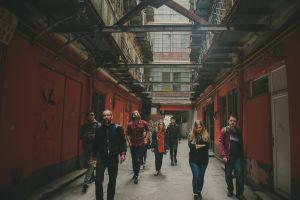
Untold Stories of Bucharest: Prostitution, Holocaust and Communist Terror
Start from: Piata Romana (Romana Square)
5. Common phrases at the accommodation
Mastering common phrases to use at the accommodation is really important, especially for solo travelers who can't rely on local guides to do the talking.
| English | Romanian | Phonetic transcription |
|---|---|---|
| Do you have any rooms available? | Aveți camere disponibile? | /a'vetsj ka'me.rə dis.po.ni'bi.lə/ |
| What’s the room number? | Care e numărul camerei? | /ka're 'jes.te nu'mə.rul ka'me.rej/ |
| Are pets allowed? | Primiți animale de companie? | /pri'mit͡sj a.ni'ma.le de kom.pa'ni.e/ |
| What hour is the check in? | La ce oră e cazarea? | /la t͡ʃe o.rə 'jes.te ka.za're̯a/ |
| What hour is the check out? | La ce oră e decazarea? | /la t͡ʃe o.rə 'jes.te de.ka.za're̯a/ |
These Romanian phrases will be very useful if you’re traveling in rural areas without a local guide to handle the logistics.
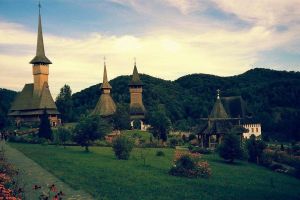
2 or 3 Days in Maramures: Wooden Churches, Traditions & Village Life
Start from: Cluj-Napoca
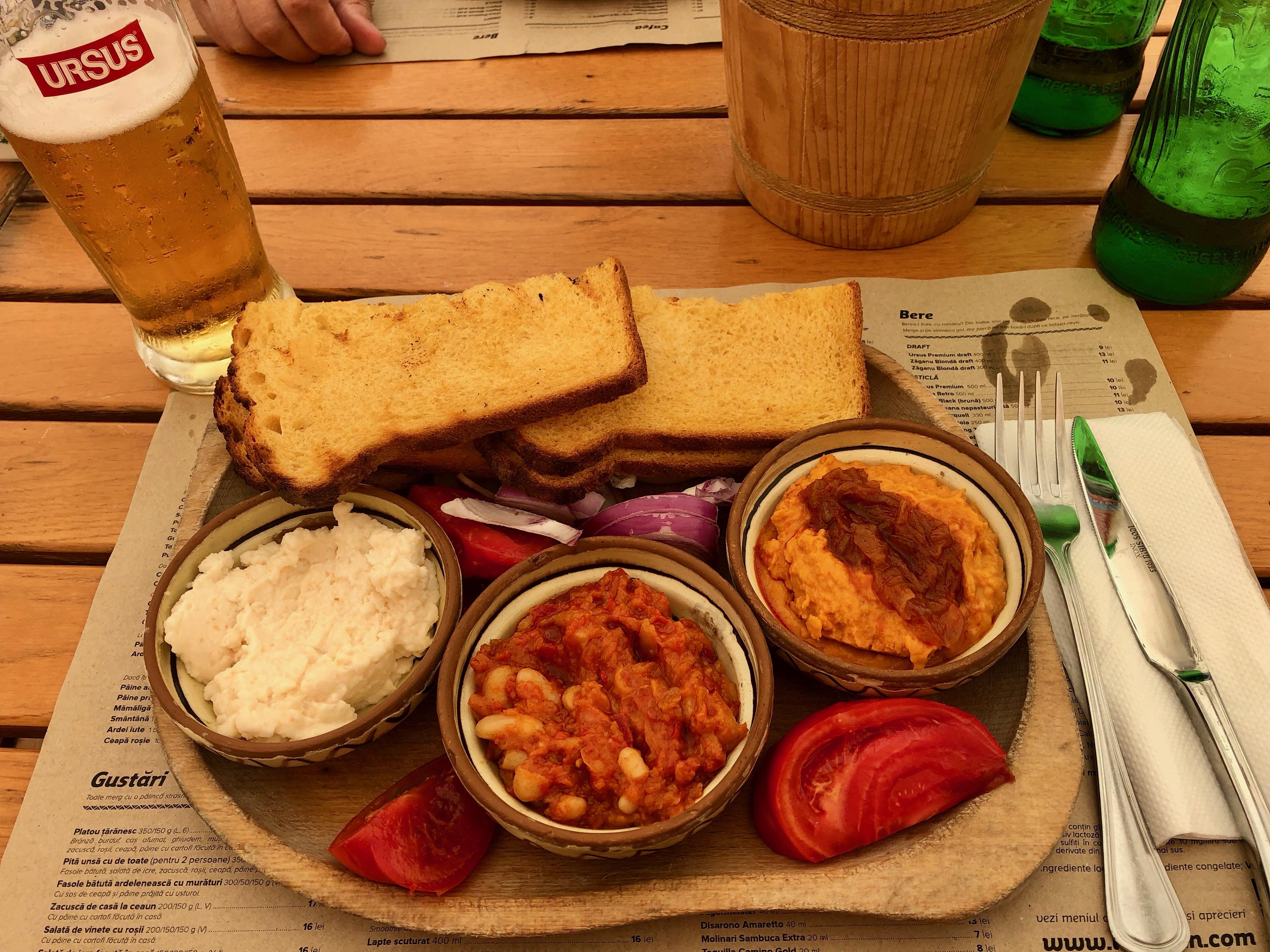
Most waiters speak English but it's good to know a word or too
6. Ordering food and drinks
Explore the best of Romanian food with confidence by mastering these essential phrases for ordering food and drinks.
Don’t worry - in most restaurants waiters will know basic English. But if you engage them in Romanian, you’ll trigger a smile and their willingness to help you improve your pronunciation or learn other useful Romanian phrases.
| English | Romanian | Phonetic transcription |
|---|---|---|
| Can I have a menu? | Îmi aduceți un meniu? | /ɨmʲ a'du.t͡ʃeʦj un me'niw/ |
| I would like… | aș dori… | /aʃ 'do.ri/ |
| I’m allergic to… | sunt alergic la… | /sunt a.leɾ'd͡ʒik la/ |
| Meat | carne | /'kar.ne/ |
| Milk | lapte | /'lap.te/ |
| Eggs | ouă | /'u.wə/ |
| Fish | pește | /'peʃ.te/ |
| Seafood | fructe de mare | /'fruk.te de 'ma.re/ |
| Peanuts | alune | /a'lu.ne/ |
| Steak | friptură | /'frip.tu.rə/ |
| Wine | vin | /'vin/ |
| Beer | bere | /'be.re/ |
| Cold water | apă rece | /'a.pa 're.t͡ʃe/ |
| Still water | apă plată | /'a.pə 'pla.tə/ |
| Sparkling water | apă minerală | /'a.pə mi.ne'ra.lə/ |
| Coffee | cafea | /ka'fe̯a/ |
| Tea | ceai | /t͡ʃe̯aj/ |
| Fresh juice | fresh | /'freʃ/ |
| Soda | suc | /suk/ |
| Breakfast | mic dejun | /mik de'ʒun/ |
| Lunch | prânz | /prɨnz/ |
| Dinner | cină | /'ʧi.nə/ |
| Fork | furculiță | /fur.ku'li.tsə/ |
| Spoon | lingură | /liŋ'ɡu.rə/ |
| Knife | cuțit | /'ku.tit/ |
| Napkin | șervețel | /ʃer.ve.'t͡sel/ |
| Salt | sare | /'sa.re/ |
| Pepper | piper | /'pi.per/ |
| Ketchup | ketchup | /'ke.t͡ʃup/ |
| Mustard | muștar | /'muʃ.tar/ |
| Sauce | sos | /sos/ |
| Enjoy your meal | poftă bună | /'poftə 'bu.nə/ |
| It is delicious | este delicios | /'es.te de.li'ci.os/ |
| What is in it? | ce conține? | /t͡ʃe kon't͡si.ne/ |
| I would like the check | aș dori nota | /aʃ 'do.ri 'no.ta/ |
7. Useful phrases for shopping
Let’s say you're looking for authentic Romanian souvenirs or special gifts to take home with you. The best places for this will be in traditional fairs, farmers’ markets or street stalls in small towns where - guess what - most sellers will not speak English.
I wouldn’t recommend the phrases below for any expensive purchases or major business transactions, but they’re good enough to get you started!
| English | Romanian | Phonetic transcription |
|---|---|---|
| How much is this? | Cât costă? | /kɨt kos'tə/ |
| I’m just looking for… | Caut… | /kaut/ |
| I’ll buy it | Voi cumpăra | /voj kum'pə.ra/ |
| Are they fresh? | Sunt proaspete? | /sunt pro.as'pe.te/ |
| I’ll take (number) | Vreau… | /vre̯aw/ |
| It’s (number) lei | Costă … lei | /kos'tə ... lej/ |

8. Celebrations and special occasions
From festive greetings to expressing gratitude, these easy phrases enable meaningful connections and will make it easier for you to participate in traditional celebrations. These are essential if you’re planning to visit Romania during Winter when there are lots of celebrations.
And when I say "easy" - I mean it! For example, Noroc! (cheers) is a really simple word that you will use a lot, especially when having a drink with locals :)
| English | Romanian | Phonetic transcription |
|---|---|---|
| Cheers! | Noroc! | /norok/ |
| Congratulations! | Felicitări! | /fe.li.ti't͡ʃi.jri/ |
| Happy Birthday! | La mulți ani! | /la 'mulʦi a.ni/ |
| Merry Christmas! | Crăciun fericit! | /'krə.ʧjun fe.ri't͡ʃit/ |
| Happy New Year! | An nou fericit! | /an nou fe.ri't͡ʃit/ |
| Happy Holidays! | Sărbători fericite! | /sər.bə'to.ri fe.ri't͡ʃi.te/ |
| Happy Easter! | Paște fericit! | /'paʃ.te fe.ri't͡ʃit/ |
| Good luck! | Succes! | /su'kes/ |
9. In case of emergency
Although Romania is all-in-all a safe country, you can still find yourself in challenging situations which you need to navigate with clarity and urgency, ensuring your well-being while traveling in Romania.
These phrases will come in handy - and I hope you won’t have to use them!
| English | Romanian | Phonetic transcription |
|---|---|---|
| (I need) help! | (Am nevoie de) ajutor! | /am nevoie de aʒu'tor/ |
| Stop! | Stop! | /stop/ |
| Fire! | Foc! | /fok/ |
| Call the police! | Chemați poliția! | /ke'mat͡sʲ po'li.tsja/ |
| Call 911! | Sună la 112! | /su'nə la 'u.nu 'u.nu doj/ |
| Call an ambulance! | Chemați ambulanța! | /ke'mat͡sʲ ambu'lant͡sa/ |
10. Feelings and compliments
If you want to go beyond small talk and make real-life connections, these simple Romanian phrases will make a big difference. True to our Latin roots, we enjoy expressing our emotions and living life fully and loudly. All the best Romanian movies will make you see this, just check our list.
| English | Romanian | Phonetic transcription |
|---|---|---|
| Sad | Trist | /trist/ |
| Happy | Fericit | /fe.ri't͡ʃit/ |
| I miss you | Mi-e dor de tine | /mi.e dor de 'ti.ne/ |
| I love you | Te iubesc | /te ju'besc/ |
| You look great | Arăți grozav! | /a'rət͡ʃi 'ɡro.zav/ |
| My love | Iubirea mea | /ju'bi.re̯a me̯a/ |
11. Other helpful everyday words and phrases
And now some of the most common words needed in any conversation. Luckily, they’re easy to remember and pronounce in the Romanian language.
| English | Romanian | Phonetic transcription |
|---|---|---|
| Yes | Da | /da/ |
| No | Nu | /nu/ |
| Maybe | Poate | /'po̯a.te/ |
| And | Și | /ʃi/ |
| I | Eu | /eu/ |
| You (singular) | Tu | /tu/ |
| He | El | /el/ |
| She | Ea | /ja/ |
| We | Noi | /noj/ |
| You (plural) | Voi | /voj/ |
| They | Ei(m)/ Ele(f) | /ej/ /e.le/ |
| When? | Când? | /kɨnd/ |
| What? | Ce? | /t͡ʃe/ |
| Where? | Unde? | /'un.de/ |
| How? | Cum? | /kum/ |
| Who? | Cine? | /t͡ʃi.ne/ |
| Why? | De ce? | /de t͡ʃe/ |
| I don’t know | Nu știu | /nu ʃti.u/ |
| One | Unu | /'un.u/ |
| Two | Doi | /'doj/ |
| Three | Trei | /'trej/ |
| Four | Patru | /'patru/ |
| Five | Cinci | /'t͡ʃinʧʲ/ |
| Six | Șase | /'ʃa.se/ |
| Seven | Șapte | /'ʃap.te/ |
| Eight | Opt | /opt/ |
| Nine | Nouă | /'no.wə/ |
| Ten | Zece | /'ze.t͡ʃe/ |
| Money | Bani | /'ba.ni/ |
| Good | Bine | /bi.ne/ |
| Very good | Foarte bine | /'fo̯ar.te 'bi.ne/ |
| Bad | Rău | /rəw/ |
| What time is it? | Cât e ceasul? | /kɨt e t͡ʃe̯a'sul/ |
| Can you help me? | Mă poți ajuta? | /mə poʦʲ a'ʒu.ta/ |
| Can I help you? | Te pot ajuta? | /te po a'ʒu.ta/ |
| Do you speak English/French/German? | Vorbești engleza/franceza/germana? | /vor'beʃtʲ iŋ'ɡlezɐ 'frãn.t͡ʃe.ɡer'man/ |
| I don’t speak Romanian | Nu vorbesc româna | /nu vor'besk romɨ'na/ |
| I understand | Înțeleg | /ɨn'tse.leɡ/ |
| I don’t understand | Nu înțeleg | /nu ɨn'tse.leɡ/ |
| Get well soon | Însănătoșire grabnică! | /ɨn.sənə.tos'ire ɡra.bni.kə/ |
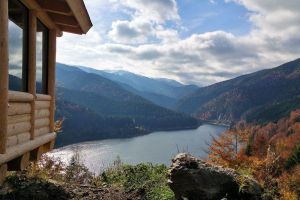
3-Day Hiking & Wildlife Trip at an Eco-Luxury Private Cabin in Fagaras Mts
Start from: Rucar, Arges county
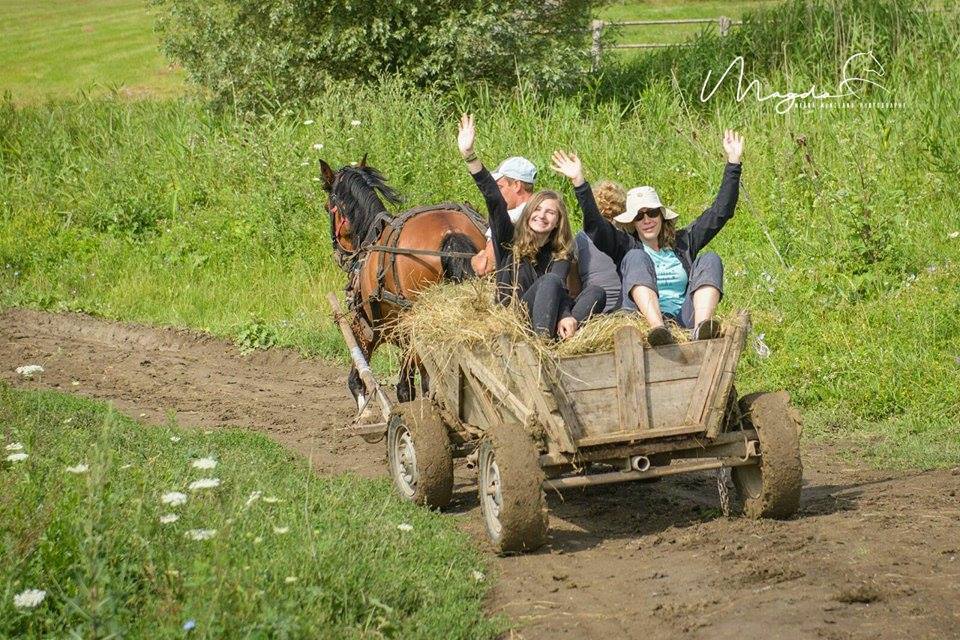
12. Colloquial Romanian expressions
Finally, my favorite part of this article :)
Romanian speakers like to use a plethora of idioms and funny phrases or sayings that, when translated word for word, may sound strange or absurd but in fact they reveal the humorous and creative possibilities our language offers.
While these phrases are not commonly used in everyday conversations, we recommend them only to 'travel experts' who already possess the basics of the Romanian language. Many Romanian interpreter roles are well paid because of the creativity needed to translate them.
If you’re a beginner though, here’s what I would do:
- pick the funniest one
- memorise it
- carefully wait for the right moment, or create the context for it, and then drop it like it's hot :)
I guarantee you - native speakers will be stunned and burst into laughter. It will be a delightful opportunity to use the quirks of our language to connect deeper with locals and create a memorable moment!
- "A freca menta" (/a 'fre.kə 'men.ta/) literally means ”to rub a mint leaf.”
The expression dates back to Roman times when slaves would prepare a feast. Rubbing a mint leaf while cooking was seen as the least demanding activity, so this expression is used for those slacking off or to call someone lazy.
- "Minte creață" (/'min.te are.aʦə/) literally means ”curly mind”
The meaning may imply both a person who is illogical and does not seem to make obvious connections and a person who holds a lot of information and is intelligent. You need to pay attention to the context to tell how it is being used.
- "A da cu mucii în fasole" (/ku 'mu.t͡ʃij ɨn fa'so.le/)
Translating into ”spilling your (nose’s) buggers into the beans’ soup” which is a funny phrase to say someone messed up badly and in public.
- "La Paștele Cailor" (/la 'paʃ.te.le ka'jor/)
Literally to “horses’ Easter” meaning never-ever. So if someone asks you When will you visit Romania again? you can answer with this for a full laughter blowout 🙂
- "I-a picat fața" (/i.a 'pi.kat 'fa.tsə/)
Similar to the English phrase “his jaw dropped” - only this time it’s the face.
- "Te îmbeți cu apă rece" (/te 'ɨm.beʦ ku 'a.pə 're.t͡ʃe/)
Translates to “getting drunk on cold water” and means being delusional or unrealistic.
- "A băga mâna în foc pentru cineva" (/a 'bə.ɡa 'mɨ.na ɨn 'fok 'pen.tru 't͡ʃi.ne.va/)
Means to stick one’s hand in the fire as a sign of faith and complete trust in someone else.
- "Frecție la piciorul de lemn" (/'frekt͡si.e la pi't͡ʃo.rul de lemn/)
Means giving a massage to a wooden leg, meaning something completely useless.
- "A-i pica fisa" (/a.I 'pi.ka 'fi.sa/)
Word-to-word translated as his/her coin dropped, meaning having a sudden realization or making a connection.
- "A-ți lua inima în dinți" (/aɨt͡s 'lu.a i'ni.ma ɨn dint͡si/)
Literally translates to “to take your heart in your teeth”, meaning to summon the courage to do something, acting despite the fear.
If the Romanian expressions above brought a smile to your face, you might want to also check this video that will uncover a few more:
Obviously, you should use these phrases in casual social settings, but even in formal ones they will achieve the desired effect - if used right. Romanians are generally relaxed, laid-back and like to have a good laugh, so don’t worry about being inappropriate.
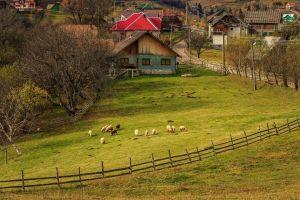
3-Day BEST of Transylvania Tour: Brasov, Sighisoara, Bran & Viscri
Start from: Bucharest
Conclusion
So, picture yourself amidst the breathtaking landscapes of Romania, where lush green valleys and towering mountains hide famous Romanian castles.
As your jaw drops in this setting, knowing a few useful Romanian phrases will quickly transform simple and polite interactions into cherished memories. Whether you want to interact with locals at a Romanian festival or have a drink with like-minded people of a different nationality, these are the opportunities that can create a lifetime memory.
And if you want yet another reason to learn the phrases presented in this article, science gives us a good one. New studies show that learning a new language can improve your brain by creating new neural connections and stronger bonds between hemispheres.
The best part is that you don't have to reach the native speaker level to benefit from this process. Pretty cool, huh?
Don’t forget to save this article to keep it handy for when you visit Romania - we’ll be happy to guide you!
Your Romanian Friend,
Elena
